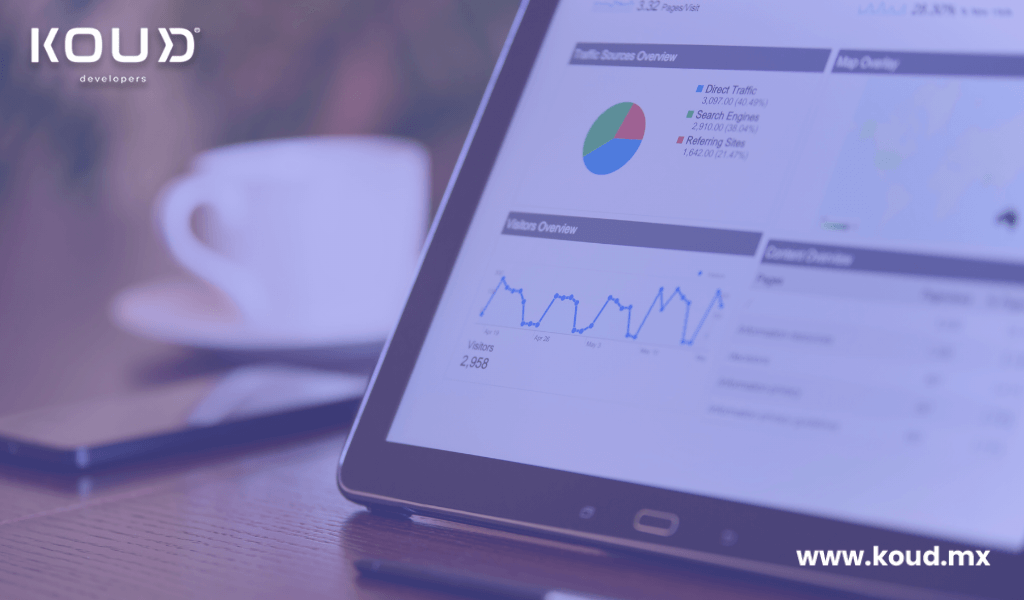The Future of Leasing: Custom Software for Efficient Management
The leasing market is rapidly evolving due to digital transformation and the increasing demand for more efficient and automated processes. Companies across various industries are looking for ways to improve contract management, invoicing, asset tracking, and regulatory compliance.
In this context, custom software for leasing has become a key tool for optimizing business operations, reducing costs, and enhancing customer experience. In this article, we explore how digitalization and tailor-made software are shaping the future of leasing and the best strategies to leverage these innovations.
The Future of Leasing: Custom Software for Efficient Management
1. How Is Leasing Changing with Technology?
Traditional leasing has relied on manual processes, extensive paperwork, and inflexible systems for years. However, the rise of artificial intelligence, process automation, and big data has enabled leasing companies to optimize their operations and improve efficiency.
Key Trends Shaping the Future of Leasing:
Automated contracts and payments: Reducing management time and human errors.
Real-time data analytics: Improving decision-making based on financial and operational insights.
Asset management with IoT: Digital tracking of equipment, fleets, and properties in real time.
Enhanced digital customer experience: Access to intuitive platforms for self-service contract and payment management.
Practical Example:
A vehicle leasing company implemented a system based on IoT and big data, successfully optimizing fleet utilization and reducing maintenance costs by 25%.
2. Benefits of Custom Software for Leasing
Unlike standard solutions, custom software allows businesses to tailor functionalities to their specific needs, providing greater flexibility and control.
Key Benefits of Custom Leasing Software:
Optimized contract management with digital signature and automation tools.
Automated billing and payments with integration into banks and payment gateways.
Improved asset tracking using IoT and blockchain technologies.
Guaranteed regulatory compliance with real-time updates on local and international regulations.
Integration with ERP and CRM systems to enhance operational efficiency.
Practical Example:
A real estate leasing company implemented a custom software solution with digital signature and automated payments, reducing contract signing times by more than 50%.
3. Key Features of Custom Software for Leasing
An efficient leasing software solution should cover all aspects of the lease lifecycle, from contract initiation to lease completion.
1. Automated Contract Management
- Digital signatures and cloud storage.
- Auto-renewals and expiration alerts.
2. Billing and Payment Control
- Electronic invoice generation and receipt management.
- Automated billing with reminders and recurring payments.
3. Real-Time Asset Tracking
- Monitoring asset conditions using IoT sensors.
- Alerts for preventive and corrective maintenance.
4. Artificial Intelligence for Risk Analysis
- Evaluating customers and determining optimal lease conditions.
- Identifying patterns of non-payment or contract breaches.
5. Customer Self-Service Platform
- Online portal for managing payments and contract renewals.
- AI-powered chatbots for automated customer support.
Practical Example:
A medical equipment leasing provider integrated a system with AI-based risk analysis, reducing delinquency rates by 35%.
4. Implementing Custom Software for Leasing Companies
To successfully implement leasing management software, businesses must follow a well-planned strategy to ensure scalability and effectiveness.
Step 1: Assess Business Needs and Objectives
- Identify processes that require automation and digitalization.
- Define essential features and modules for the software.
Step 2: Select the Right Technology and Development Approach
- Decide between a cloud-based or on-premise solution.
- Choose scalable technologies like microservices and API-first architecture for greater flexibility.
Step 3: Integrate with Other Business Systems
- Connect the software with ERP, CRM, and accounting platforms.
- Ensure compatibility with payment gateways and legal compliance frameworks.
Step 4: Employee Training and User Adoption
- Train staff to maximize system efficiency.
- Implement digital onboarding strategies for customers.
Step 5: Monitor and Continuously Optimize
- Conduct periodic audits and improve functionalities as business needs evolve.
- Adapt the system to new leasing regulations and industry requirements.
Practical Example:
A financial leasing bank implemented modular software integrated with its ERP and digital banking platform, increasing operational efficiency by 30%.
5. Success Stories in Custom Software for Leasing
Case 1: Fleet Leasing – Optimized Route Planning and Cost Reduction
Company: Commercial vehicle leasing provider.
Problem: Lack of control over fleet operating costs.
Solution: Implementation of software with real-time data analysis and route optimization.
Result: 20% reduction in operational costs and improved logistics efficiency.
Case 2: Technology Equipment Leasing – Digitalization of Leasing Processes
Company: Electronics leasing provider for businesses.
Problem: Manual processes and delays in contract approvals.
Solution: Development of a platform with digital signatures and bank integration.
Result: 50% reduction in contract approval times.
Case 3: Real Estate Leasing – Improved Customer Experience
Company: Office and commercial space leasing firm.
Problem: Lack of real-time access to lease information for clients.
Solution: Creation of a self-service portal with online payment options.
Result: 40% increase in customer satisfaction.
The future of leasing is closely linked to digitalization and customized software solutions. Companies that adopt advanced technological solutions will be able to optimize management, enhance customer experience, and reduce operational costs.
If you are looking to develop custom software for leasing, contact us for expert consulting and transform your business with cutting-edge technology.
Empresa
- Nosotros somos
Somos una empresa mexicana con más de 12 años de trayectoria en la industria
Servicios
- Desarrollo de Software a la medida
- Staffing TI
- Headhunting TI
Contacto
- +52 1 33 2342 9770
- letskoud@qa.koud.mx
- Av. Patria 2085 int. 175 piso 1 puerta de hierro Zapopan Ja. 45116

